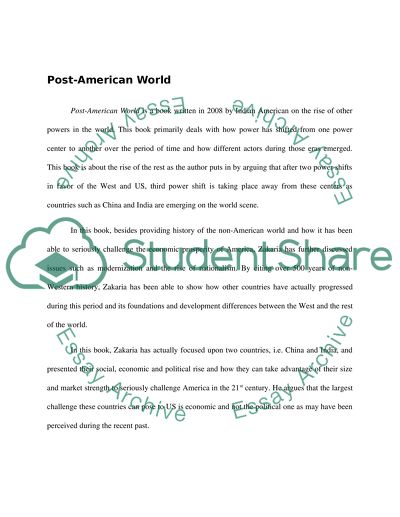Cite this document
(“The Post-American World by Fareed Zakaria Book Report/Review”, n.d.)
Retrieved from https://studentshare.org/history/1401174-the-post-american-world-modern-world-history
Retrieved from https://studentshare.org/history/1401174-the-post-american-world-modern-world-history
(The Post-American World by Fareed Zakaria Book Report/Review)
https://studentshare.org/history/1401174-the-post-american-world-modern-world-history.
https://studentshare.org/history/1401174-the-post-american-world-modern-world-history.
“The Post-American World by Fareed Zakaria Book Report/Review”, n.d. https://studentshare.org/history/1401174-the-post-american-world-modern-world-history.


